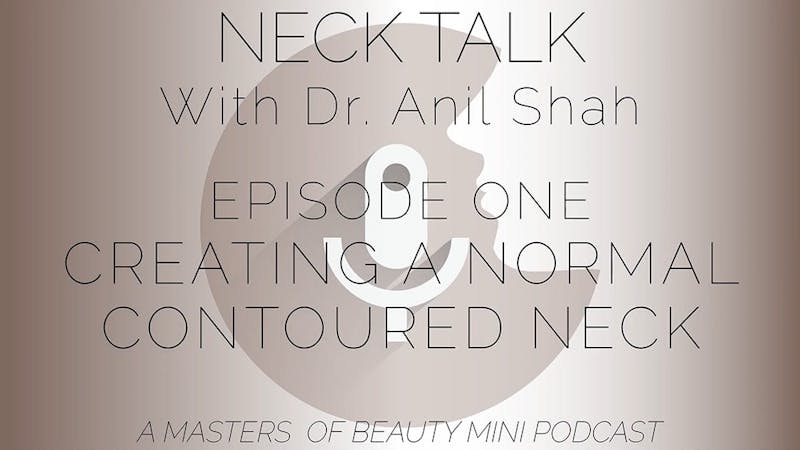
Posted by Dr. Anil R. Shah
This audio podcast has been transcribed using an automated service. Please forgive any typographic errors or other transcription flaws.
Why do many necks not look the way they want to? So one of the things I see so often in my practice are patients who’ve had previous attempts at either liposuction, faceless necklace. And when the patient comes to me, they say, you know what? I kind of look better, but I really didn’t see the difference I was looking for. And that’s super frustrating to me as a surgeon, because you want patients who are getting a procedure to get the best results to anatomically can have. And so for me, this used to be a similar sentiment among my patients many years ago. And I would do the same standard approach where I would remove the superficial layer of fat, which is underneath the skin in between the muscle. There’s a problem, though, with this technique, when you just remove this thin layer of fat, that’s really not what patients are asking for, what they want is a sculpted jawline.
So what I’ve evolved to and what I do in many of my, my patients, who’ve had procedures done elsewhere who want this fixed is I have to go deeper. And what I mean by deeper is I have to go underneath that muscle in the neck, remove the deeper fat, which is again, much more challenging anatomically. And you want someone who’s super experienced in face the neck here, and then reposition that and reposition a deeper muscle there by repositioning this, this deeper layer of muscle and removing this layer of fat patients can now tell me that they’ve seen neck lines that they’ve never seen before. And this is one of the tenants in fundamental truths to fixing a neck is you have to take care of the layers. Otherwise you’re just trying to hold things back like Spanx, the Spanx can hold up for so much, but after a few weeks, few months it’s going to release and you’re going to see all that stuff kind of pushing her out. So you have to remove that you have to contour that otherwise you’re going to create that Spanx effect.
So why doesn’t everyone do this approach? Well, first of all, it’s an approach. I developed myself, um, uh, definitely there’s other surgeons who remove deeper layers of the fat, but how I repositioned the fat and the hyoid bone, the deeper layers is something I developed after, um, observations on my own next. Um, why doesn’t anyone else do it? Cause it’s super challenging. Um, I may by training, I’m a facial plastic surgeon, which means my background is in head and neck surgery and in facial plastic surgery. So dealing with the complex structures of the neck, there’s lots of, and this is the scary part, big blood vessels and nerves in glands and so forth that if you have someone who’s not trained to do that, you can have some serious issues. Why would I risk this? Because it’s something I’m super comfortable with. Um, I’ve never had an issue in any of my next dealing with a, um,
Serious complication. And for sure if you’ve done enough next, you might have had minor complications where you may have a scar issue or a little more swelling here or there, but never a serious complication, like, um, serious bleeding of the neck, nerve damage and things of that nature. And that’s because again, um, something I’m super comfortable with something I take pride in and something I’m always updating myself with, which is constantly relearning teaching myself, the anatomy, teaching the anatomy to others, including at the university of Chicago. I teach the facial plastic cadaver course every year, as well as learning new anatomy that even other surgeons didn’t know, um, such as teaching like the extent of the participant muscle, um, uh, landmarks with the, um, the second Medicus major and other sorts. So if you’re going to do a neck procedure and you’re looking for that snaps neck, make sure you’re actually treating, what’s anatomically wrong with your neck. Otherwise you’re going to have kind of a lackluster result.

